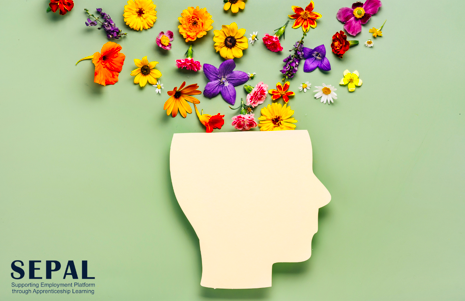Talking about our mental health is slowly becoming an everyday thing. For many generations, this subject has been considered a taboo and within diverse nations, conversations on this topic were usually avoided, as it was considered somehow shameful. These days, however, more and more people have started to embrace their mental health care, feeling no longer judged for seeking professional help as a way to cope with emotional distress.
In this context, we’d like to bring into discussion the negative effects of the pandemic on youth mental health, one of the most vulnerable categories in light of the recent changes. Perhaps the social aspect is the first one worth mentioning.
As lockdowns were imposed at a large scale, the COVID-19 situation has put a stop on youths’ opportunities to engage with their peers, resulting in loss of connections, an amplification of loneliness, anxiety that their life would not follow its normal course, as well as fear of not being able to adapt to the new environment. In the past year, since things have started to slowly go back to normal, many teens have struggled to get back on track and maintain their networks. Friendships were lost and low levels of motivation have started to kick-in, as people were no longer able to enjoy the activities they used to. Now, three years since our lives have started to change, some still experience dissappointment and discouragement when trying to initiate new relationships or reconnect with their old acquaintances.
From an educational, financial and/ or professional point of view, the effects of the pandemic are also visibile. Having finished school or professional training in on-line format, many youths regard themselves as insufficiently prepared to enter the labour market, as many of the skills they were supposed to develop, required a physical presence. Their chances of getting an internship or hands-on experience have lowered, decreasing the opportunities to gain knowledge for a future career. Hopeless that they would ever get the dream job, some youngsters fail to boost their morale, become easily let down and don’t want to keep trying anymore. Moreover, up to this day, returning to school attendance in person might feel quite difficult for some of the youngsters. There are youths who still struggle and what we can do best is assure them that it’s normal to feel like this, showing them that at the same time, there are solutions to cope with emotional distress and enjoy life like they used to.
Alina from Suceava (Romania) – one of the former NEETs that received support through the SEPAL Project, and now part of the team – decided to talk about how the pandemic influenced her personal and professional life, and here are her thoughts: ”I have never thought that the COVID-19 pandemic would have such a huge impact on my mental health. Everything changed when the pandemic hit. With the workplace, restaurants, malls or cinemas closing, and my town quarantined, I found myself isolated from my loved ones, leading to feelings of loneliness, stress, anxiety, and sometimes even depression. Moreover, the pandemic disrupted my daily routines (going to the office, practicing sports, participating in social events), bringing, at the same time, challenges such as the remote work (being alone for 8 hours in front of a laptop) and financial insecurity (not knowing that will happen next). All these came with negative effects in my life, but I found inside resources and I tried to adapt to the global context. How? I connected with my close ones through technology – video calls and online interactive games… And it helped a lot! Concerning the professional life, I had started my career, one month before the pandemic. It felt like a rollercoaster! But I was grateful for the fact that I had a job and that I had the possibility to work online, from home, even if I missed the social interaction and the actual presence in the office. Zoom meetings and virtual interactions were just not the same. One essential thing that I learnt during the last three years is that my mental health should come on the first place: I have learnt to set boundaries and create a work-life balance, I have learned to take breaks, go for walks, and disconnect when I need to. I recommend to the others to practice self-care, to ask for the support when they feel it is needed and to talk about their mental health”.
Alina Adomnicăi
Communication Manager
(SEPAL Pro Project)


